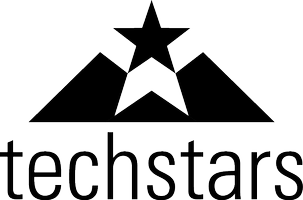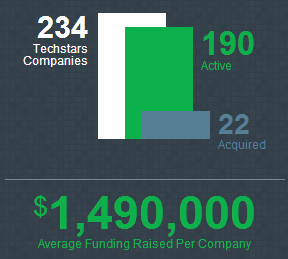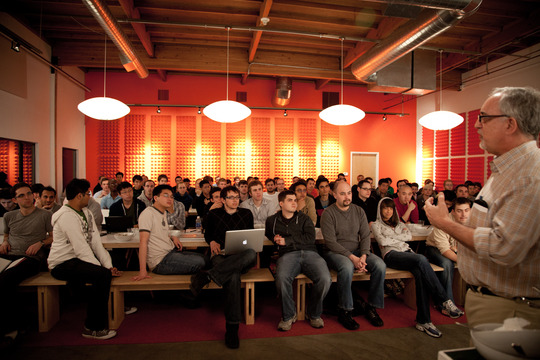
Last week, I had the distinct pleasure of sharing with an audience through Texas State’s tech incubator, Spectrum, some thoughts on how team and culture determines your future as a startup. Joined throughout the morning by Paula Soileau, CEO of Affintus, Casey Amidon, Human Relations for Drillinginfo, and Jason Seats, Managing Director of Techstars Austin, we explored with entrepreneurs what it takes to build a team, create customers, attract talent and partners, and raise capital. Arguably, the most profound and important statement made was that of Seats in characterizing how they decide which entrepreneurs and startups are worth a closer look.
Profound, as our talk preceded by mere hours, a fantastic post from Engine Cofounder Michael McGeary highlighting the 3 things every entrepreneurial hub should import from Austin. McGeary noted during his time in Austin at Startup Week:
- Fail well and let success breed stewardship – “There is obvious financial upside, but for many of the investors I spoke with here, it isn’t good enough to make a profit, the bigger aim is to create opportunity. In doing that, they make Austin and the startup community here stronger and more vibrant.”
- Open, unfettered communication and collaboration – Startup focused events dominating the local calendar creates the opportunity for cross-pollination and collaboration.
- Civic engagement – While you no doubt have a multitude of technology-focused business and trade associations, they must focus on community engagement.
“Austin is providing a blueprint for other communities that want to strengthen their local economies by incubating the growth of young high-tech companies,” McGeary remarked. “Granted, Austin has some incredible advantages that other cities cannot offer… but there are lessons that can be learned and actions that can be replicated.”
Michael goes on to clarify the importance of collaboration.
“In practice, the need for collaborative efforts, breaking down siloed communication, couldn’t be more real. The more entrepreneurial folks interact, the deeper they set their roots into the community, and that only means good things for opportunity.”
Still, what’s so profound?
How often have you been asked about your traction and MVP more than your team and your market? Those very tenets of Michael’s observation foster the teams and markets that enable revolutionary innovation.
How Techstars is transforming entrepreneurship in Texas
 What are your skills, experiences, and passions? I’m paraphrasing now, giving my own perspective on an approach that Techstars takes to deciding which ventures, rather, which entrepreneurs, are accepted into their program. Their near singular focus is on team. Before asking what you’re doing, your business model, or even exploring the idea of traction, they want to know you.
What are your skills, experiences, and passions? I’m paraphrasing now, giving my own perspective on an approach that Techstars takes to deciding which ventures, rather, which entrepreneurs, are accepted into their program. Their near singular focus is on team. Before asking what you’re doing, your business model, or even exploring the idea of traction, they want to know you.
Second to team, is team. No, that’s not a typo. Successful entrepreneurs are not islands unto themselves but teams of individuals within on complementary skills and experience, and shared vision. Still, before know what you’re doing, they stress the utmost importance of the team in which they are investing.
Having passed that bar, Jason shared during our panel, that Techstars next explores your market. I’ve characterized my own experience with how Silicon Valley embraces this priority, the fact that experienced, sophisticated marketing must be a part of your earliest team and determines the product you build. I won’t go so far as to suggest that Techstars agrees with that manifestation of your venture, but the third most important consideration of your business is the market.
With three green lights, the impact that Techstars is having on entrepreneurship throughout Texas is to highlight that only then does how you are approaching that market matter. Your product is the result of the team, team, and your understanding of and opportunity in a market.
If the team at Techstars believes in the potential for your product, with an exceptional time horizon, only then, does traction influence their decision and interest in you.
Let me reiterate, this is my interpretation of their rank ordered evaluation of your potential as a venture: team, team, market, product, and traction. How often have you been asked about your traction and MVP more than your team and your market? Consider if you are involved with the right advisors, the right investors, the right partners; if your experience as an entrepreneur in your economy is reversed: traction, product, market, team, team. There is no right answer, there is no right way to find success as an entrepreneur and that reversed focus on product and traction is simply different; rather, what’s exciting about Techstars’ impact on Texas is their diligence that team (the right collaborations) and market (dare I say, industry, marketing, brand, opportunity) is of the utmost importance.
Techstars provides seed funding from over 75 top venture capital firms and angel investors who are vested in the success of your startup, as well as intense mentorship from hundreds of the best entrepreneurs in the world.
Forbes and Bloomberg have been calling Austin the No. 1 Boomtown and the best place for your startup for years now,” highlighted David Cohen, founder and CEO of Techstars in announcing their launch in Austin, “and Google recently chose it as the second city to receive the fastest Internet on the planet.”
What does Austin have to do with Techstars throughout Texas?? Philosophy aside, Techstars already calls San Antonio home through Geekdom and their Techstars Cloud program, making it one of the few organizations in Texas serving entrepreneurs directly through different cities; supporting your growth through various cities.
 Techstars’ program is backed by over 75 different venture capital firms and angel investors and provides for entrepreneurs, three months of intensive mentorship and acceleration. As a result, Techstars’ startups average over $1.4M in outside venture capital and their track record speaks for itself; while conventional wisdom affirms that 9 out of 10 startups fail, 190 or 234 Techstars ventures remain active.
Techstars’ program is backed by over 75 different venture capital firms and angel investors and provides for entrepreneurs, three months of intensive mentorship and acceleration. As a result, Techstars’ startups average over $1.4M in outside venture capital and their track record speaks for itself; while conventional wisdom affirms that 9 out of 10 startups fail, 190 or 234 Techstars ventures remain active.
In nearly the same breath as Michael McGeary’s timely post about what startup communities can learn from Austin, Marco Zappacosta, Cofounder and CEO of Thumbtack, shared with Sequoia Capital the incredible story of their growth through the “firing” of customers; seemingly abandoning what many embrace as the very definition of traction.
“We’ve gone through three different business models in order to find the one that’s best for us,” shared Zappacosta. “The thing that got us to our current one, which I suspect is the one we’ll keep, is a relentless focus on the places where we provide the most value.”
The timing of their story struck me as no mere coincidence: only an incredible team focused on their market first, could accomplish as much as being in a position to fire hundreds of thousands of paying customers. Team, Team, Market, Product, Traction.
Techstars’ inaugural, Austin Demo Day is next week Tuesday at the Austin Music Hall. Register to attend here and I hope to see you there.



[…] Remember – traction, team and market. […]